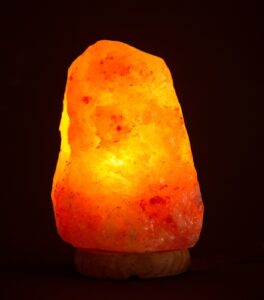
Don’t smoke inside
Everyone knows that cigarettes are harmful to your health – both for the smoker and for those who are exposed to secondhand smoke. According to the Surgeon General, even breathing just a small amount of secondhand smoke can be harmful. The best way to improve the air quality in your home is to not smoke indoors.
Test for radon
Radon is the second leading cause for lung cancer. It’s an odorless, tasteless radioactive gas that is released from the decay of elements in rocks and soil. The only way to determine if harmful levels of radon are present in your home is to have an indoor air quality testing service conducted by professional residential radon mitigation specialists.
Open the windows
One of the easiest and most inexpensive ways to clean the air in your home is to simply open the windows. Even if you only open them for a few minutes a day, it’s enough time to get the air moving so that indoor pollutants can be dispersed.
Get some houseplants
Houseplants aren’t just great for decoration. They can also help filter the air in your home. In fact, the American Society of Horticulture Science has determined that there are three houseplants in particular that can reduce ozone levels in your home – snake plants, spider plants, and golden pothos.
Use essential oil diffusers
Instead of using scented candles, which perfume the air, opt for essential oil diffusers. Not only do the fragrances of the oil make your house smell nice, they can also cut down on pollutants. Essential oils such as tea tree, eucalyptus, rosemary, and clove have antibacterial properties and can help reduce dust mites.
Use nontoxic chemicals
Are you using harsh chemicals to clean your home? They can actually be contributing to your problem. Toxic chemicals can cause irritation and should only be used as a last resort. Instead, opt for natural cleaners like vinegar and baking soda.
Run your air conditioner
Every time you run your air conditioner, you’re cleaning the air in your home. That’s because most AC systems use an air filtration device that traps particles before the air is pumped back into your home. Be sure to replace the hvac filters as often as the manufacturer recommends and always check if your unit is running smoothly otherwise you will need to get a commercial hvac repair with the help of residential air conditioning services. Otherwise, an air conditioning repair is needed. If you’re looking for an air conditioning service who can provide professional ac installation and air conditioner repair, then visit sites like https://stithplumbingandhvac.com/ac-services/tune-up/.
Groom your pets
Pet dander can be a major problem for some people and makes asthma symptoms worse. Help keep the air clean by brushing them outdoors frequently and vacuuming regularly.
Get a salt lamp
Did you know that Himalayan salt lamps not only add a pretty glow to your room, they also help clean the air? The warm bulb inside heats the salt lamp, which releases negative ions into the air. Negative ions help to keep the air clean, much like the clean air you find on ocean beaches.
Finally, mold can also affect your home’s indoor air quality. Thus, it’s essential to hire a mould removal expert to inspect your home and get rid of any mold and mold spores.
Compliments of Virtual Results
 By submitting information, I am providing my express written consent to be contacted by representatives of this website through a live agent, artificial or prerecorded voice, and automated SMS text at my residential or cellular number, dialed manually or by autodialer, by email, and mail.
By submitting information, I am providing my express written consent to be contacted by representatives of this website through a live agent, artificial or prerecorded voice, and automated SMS text at my residential or cellular number, dialed manually or by autodialer, by email, and mail.

